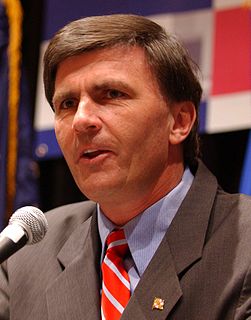A Quote by George Orwell
The tendency of advanced capitalism has been to enlarge the middle class and not to wipe it out, as it once seemed likely to do.
Related Quotes
Humans having any kind of sporting chance against hostile alien invaders armed with superior technology - Good luck. If they're advanced enough to cross the enormous distances of interstellar space, they're advanced enough to wipe us out without breaking whatever in their physiology passes for a sweat.
What I hear from employers day in and day out is, 'I need to make sure I have that skilled workforce to compete.' And so we've been able to help so many people punch their ticket to the middle class by transforming our workforce development system for advanced manufacturing jobs and other critical jobs that exist right now.
The government decides to try to increase the middle class by subsidizing things that middle class people have: If middle-class people go to college and own homes, then surely if more people go to college and own homes, we’ll have more middle-class people. But homeownership and college aren’t causes of middle-class status, they’re markers for possessing the kinds of traits — self-discipline, the ability to defer gratification, etc. — that let you enter, and stay, in the middle class. Subsidizing the markers doesn’t produce the traits; if anything, it undermines them.
I was brought up in a very naval, military, and conservative background. My father and his friends had very typical opinions of the British middle class - lower-middle class actually - after the war. My father broke into the middle class by joining the navy. I was the first member of my family ever to go to private school or even to university. So, the armed forces had been upward mobility for him.







































